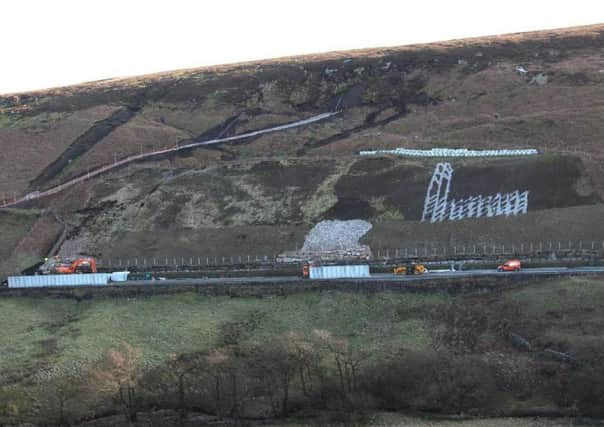YP Comment: North must be in the driving seat. A59 near Harrogate is key link


Yet the issue is more fundamental than the CBI’s call for the Commission to be given greater powers in the Budget. It’s also about this new body rectifying the sins of the past – and ensuring future investment here is commensurate with the levels of spending now taken for granted in London and the South East.
This rebalancing of priorities is given credence by York-based Joseph Rowntree Foundation research which reveals that 10 of the 12’s poorest performing cities are in the North. Furthermore, no city from the South features in the top 24 of a list which will increases the pressure on the Chancellor to kickstart the Northern Powerhouse before it suffers the same fate as David Cameron’s now forgotten Big Society.
Advertisement
Hide AdAdvertisement
Hide AdHowever, it is equally important that the pre-eminent focus on flagship schemes, whether it be HS2 or improvements to trans-Pennine travel, do not come at the expense of lesser improvements which are fundamentally important to the region’s economy. Take the A59 at Kex Gill near Harrogate – it has finally reopened after being closed for seven weeks following a landslip caused by heavy rain at the height of the floods. One of the region’s major east-west arteries, it is accepted that the road needs to be rerouted so it is less vulnerable to such acts of nature in the future. The problem is that North Yorkshire County Council does not have the resources to undertake an engineering project on this scale and that the financial dividend, significant to the Harrogate area, compares unfavourably to London where similar investment will deliver a far greater return to taxpayers.
It’s a key test of the sincerity of the intentions of the Government and Commission. For, while political interference will be counter-productive, the NIC will only succeed if there’s a political will to put the North in the driving seat. With the direction of travel so favouring the South, Mr Osborne needs to find a reverse gear before he loses not only political momentum but, crucially, economic credibility.
EU Tory turmoil: Government tearing itself apart
ONE week after David Cameron fired the starting gun for the EU referendum, a vote that will define Britain’s status in the world for a generation, what has the country learned?
First, Boris Johnson’s publicity-seeking relatives are split after a theatrical Mayor of London backed Brexit. Second, David Cameron’s Cabinet are fighting like ferrets in the sack over perpetual leadership challenges and jobs in a post-referendum reshuffle, with the mild-mannered Foreign Secretary accused of using a profanity towards an opponent.
Advertisement
Hide AdAdvertisement
Hide AdAnd then there’s Anna Soubry, the Minister who so insulted Sheffield over the closure of the Department of Business regional office. This pro-European says the tittle-tattle is ‘media froth’, the John Prescott defence over Tony Blair and Gordon Brown’s serial feuding. It is not. It is the consequence of politicians squabbling rather than addressing the nation. Given the issue’s importance, not only do voters deserve better than this travesty of democracy but Mr Cameron might now be minded to follow Harold Wilson’s example in 1975, and stand above the fray, so he is in some position to rebuild the Government once the public have had their say.
Paying the penalty: Parking charges punish patients
LIKE it or not, hospital parking charges are a necessity despite a new poll by the RAC highlighting their unpopularity. They do prevent car parks being totally clogged up by those selfish motorists who, if given a chance, will put their convenience and needs before those of everyone else – including the sick and dying. What is unacceptable, however, is those egregious instances which are partioclarly punitive towards those patients who require long-term treatment – the value of visits from family and friends can be priceless.
Given that some NHS Trusts are making more than £3m a year from charges, the priority is finding a way of helping to subsidise the parking costs of those patients, and families, facing genuine hardship. The challenge is coming up with a fool-proof scheme that is not open to abuse – and does not result in even more unnecessary bureaucracy for the NHS. Doctors and nurses have enough to do without having to referee parking wars.